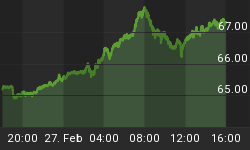Economic stupidity permeates from every mainstream media corner in a myriad of ways.
I typically expect economic stupidly, and stupidity certainly has provided endless things for me to write about.
Nonetheless, I am somewhat surprised that renowned economist Noutiel Rounbini would actually say Paris Attacks Could Boost the Eurozone Economy.
Economist Nouriel Roubini said Tuesday the Paris attacks could end up boosting the eurozone economy if the European Central Bank decides to increase its program of monetary stimulus by a larger margin than it would have otherwise. In an interview with CNBC, the founder of Roubini Global Economics said the [positive] impact of the attacks would otherwise be 'modest', unless more follow.
Thoroughly Discredited Idea
In context, the word "positive" is implied.
The notion disasters cause positive economic activity was thoroughly discredited over two centuries ago.
Ironically, the best debunking ever came from France. French political economist, Frederic Bastiat's 1850 essay, "That Which is Seen, and That Which is Unseen" provides the debunking.
Bastiat tells the story of a shopkeeper who has to hire a glazier to repair a broken window, providing work and income for the glazier in the process. That's what is seen.
What is unseen is what the shopkeeper would have done if he didn't have to pay the glazier. He might have bought shoes for his children, providing income for the shoemaker, who in turn could buy leather to produce more shoes.
Economic Reality
There is never any benefit to the destruction of productive assets. Money used on repairs could otherwise have been put to much more productive use.
If Roubini truly believes there is any economic benefit to disasters he is a Nobel-prize winning Keynesian-economist fool.
If he believes the government response could artificially add to French GDP now, while subtracting even more from future GDP, then I sympathize somewhat. But that is not how MarketWatch quoted him.
Moreover, his analysis that benefits would be "modest" unless "more" attacks follow fails to take into account the inevitable decline in business and consumer spending that would undoubtedly occur in the wake of more attacks.
In short, Roubini blew it from multiple angles.















